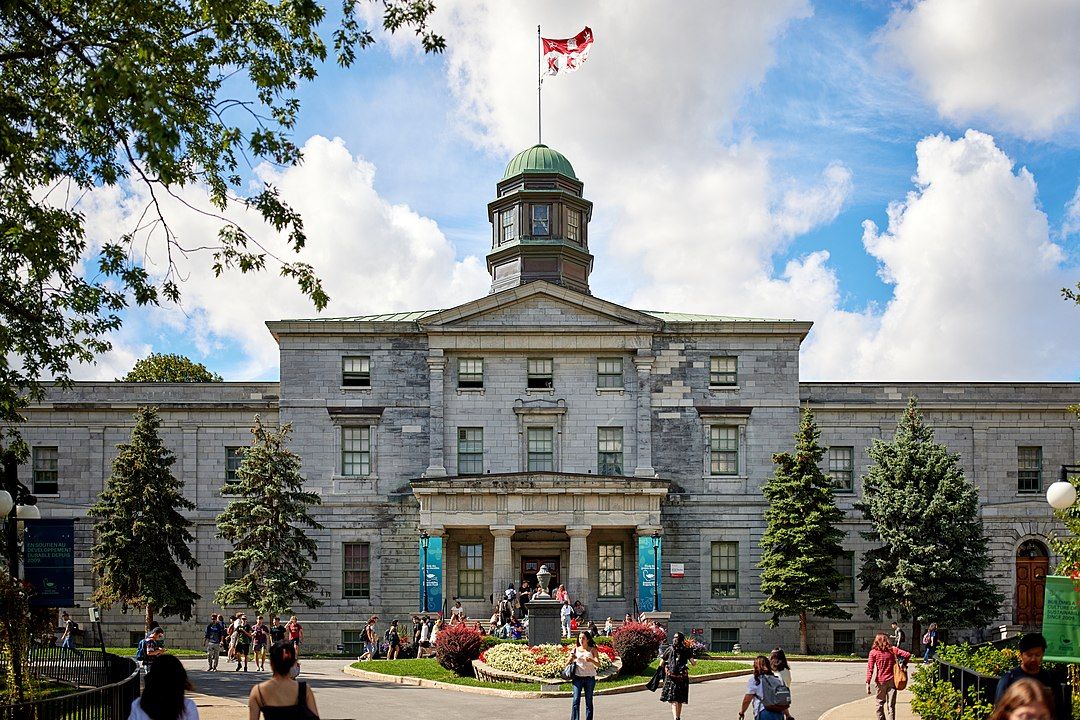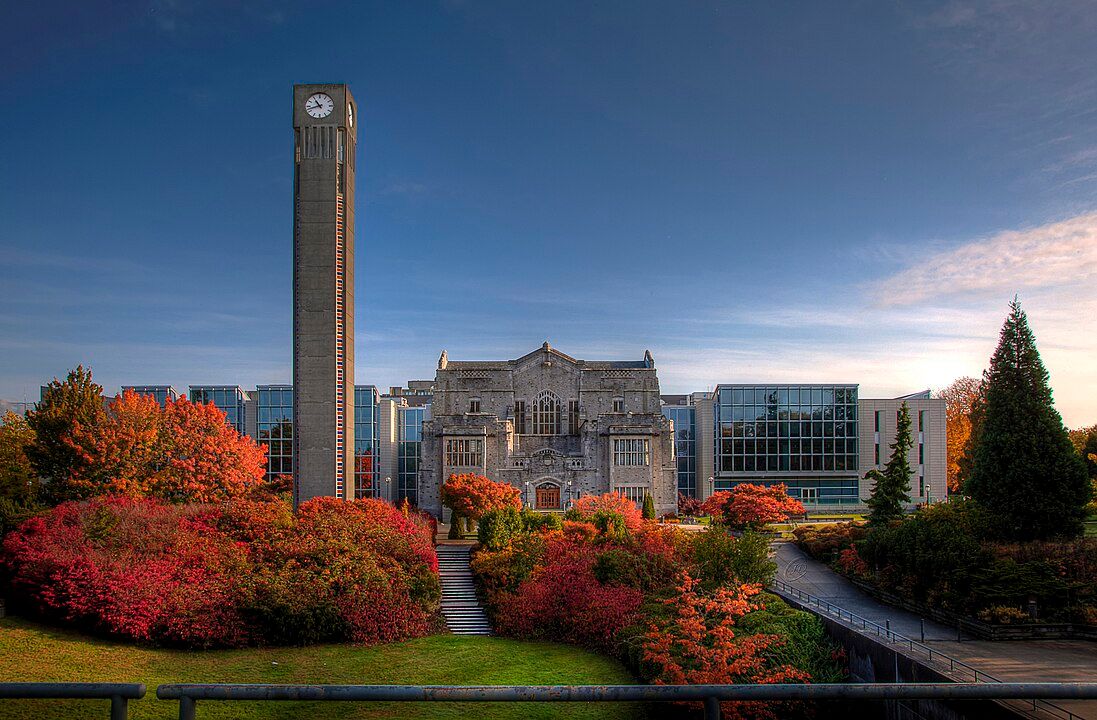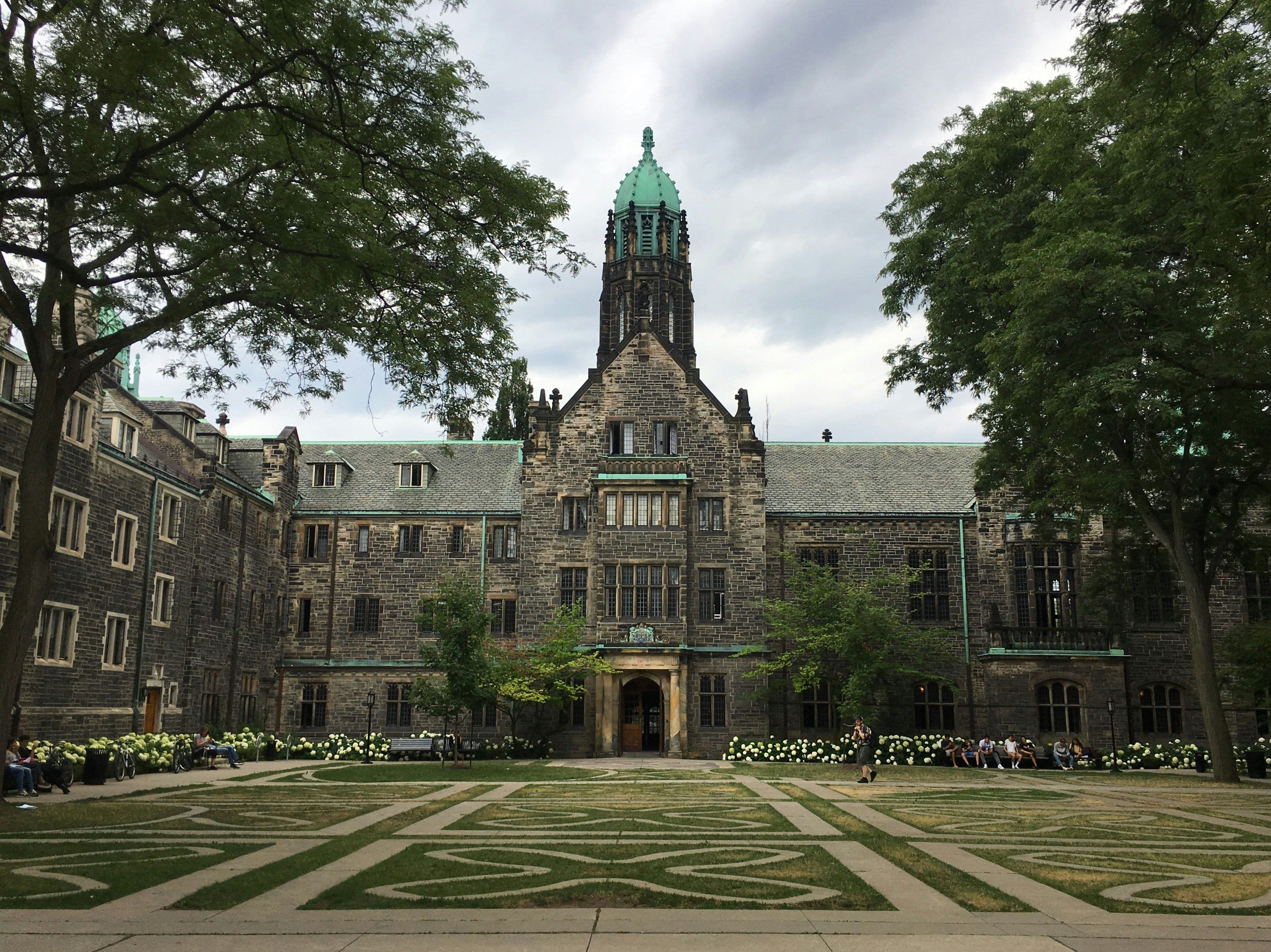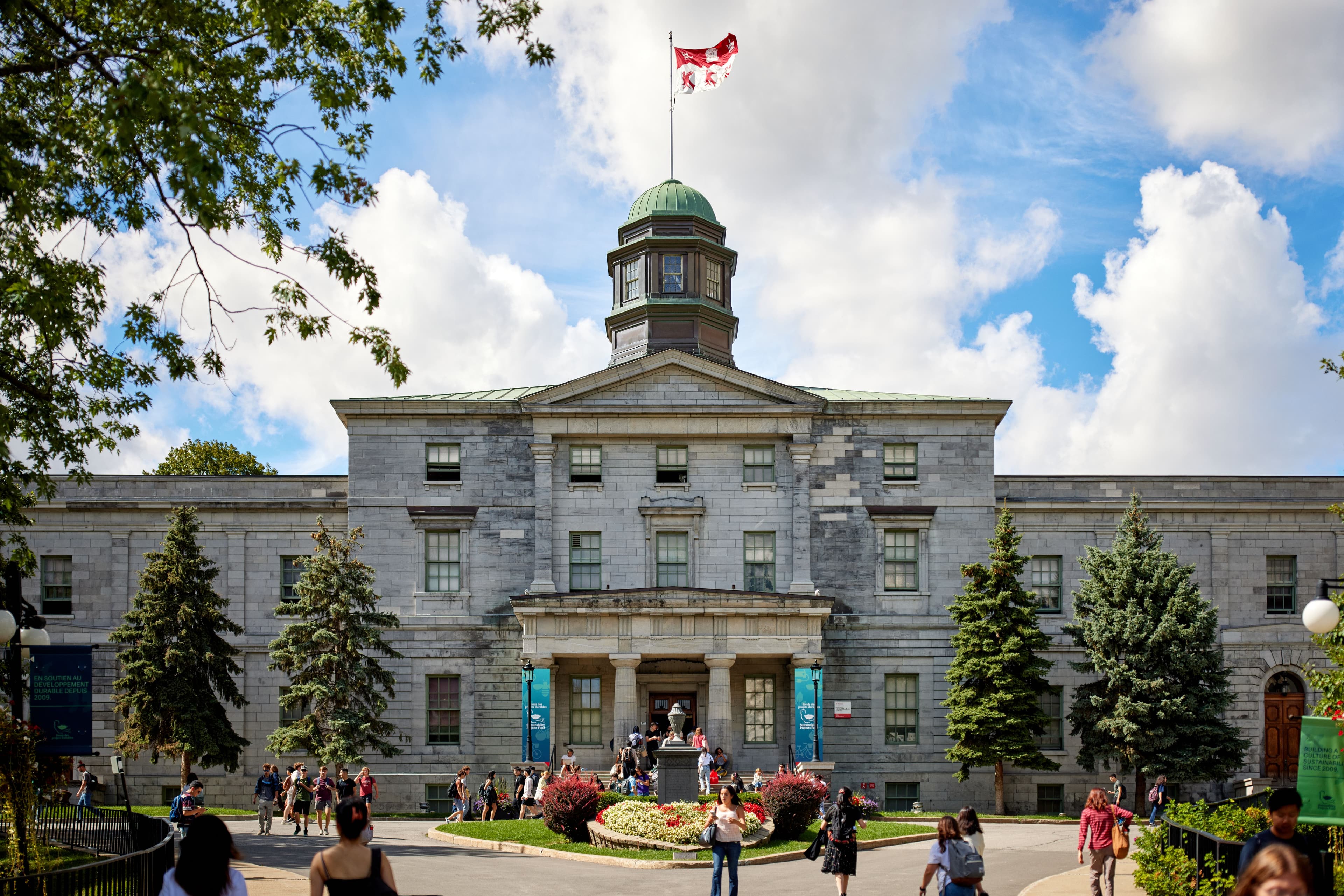
Study Abroad in Canada: Everything You Need to Know
Canada offers many opportunities for students interested in a foreign experience while still having a short flight back home. From the chance to live in a completely different culture (and we're not just talking about Quebec!) to the opportunity to study at some of the world's leading universities, studying abroad in Canada is a great idea, whether you're looking for just a semester or an entire degree.

Photo by Hermes Rivera on Unsplash
Why Study Abroad in Canada?
When most students think about studying abroad, they typically don't think of America's large neighbor to the north. However, Canada offers many opportunities for students interested in a foreign experience while still having a short flight back home. From the chance to live in a completely different culture (and we're not just talking about Quebec!) to the opportunity to study at some of the world's leading universities, studying abroad in Canada is a great idea, whether you're looking for just a semester or an entire degree.
Canada Educational System Overview
The Canadian educational system is similar to the United States in many ways. Students go to high school before applying to university. However, there are differences at the provincial level that are more pronounced than you'd find in the United States. Once you get to university, the entire process becomes more focused. Students rarely apply without a major in mind, and the structure of Canadian universities, with separate faculties for different subjects, can be an adjustment.
Is a Canadian degree valid in the USA?
Canadian degrees are among the most highly regarded in the world, with several universities in the global top 50. As such, a degree from a Canadian university is widely viewed as an asset in the US. One thing to note, however, is that there are cases in which you will have to have a credential examiner verify your degree. This is especially true if you're going to work for the government. However, the cost of this service (around $200 US) is nominal.
Top Canada Colleges and Universities for International Students
Despite having a population of only around 30 million, Canadian higher education punches well above its weight. Some of the best universities in the world are in Canada, with faculties that rival and often exceed those of their neighbors south of the border.
University of Toronto

Photo by Narciso Arellano on Unsplash
Arguably the best university in Canada, the University of Toronto attracts the brightest minds from around the world. The campus is split between downtown Toronto and the suburbs and routinely receives acclaim worldwide. Intriguingly, for many Americans, Toronto's acceptance rate (nearly 54%) is one of the lowest in Canada, but it makes it much more accessible for American students.
The University of Toronto's global reputation goes far beyond its aggregate rankings. More of Toronto's departments ranked in the global top 50 in their respective specialties than any other university worldwide. In medical research, the university and its affiliated hospitals rank second globally. For those who are more business-minded, the university ranks 11th in the world for employability. It is the top incubator of research-based startups in Canada.
McGill University

By D. Benjamin Miller - Own work, CC0, https://commons.wikimedia.org/w/index.php?curid=122518010
Despite being in Francophone Montreal, McGill is an English-language university that competes with its rival U of T for the top spot in the Canadian rankings. It is home to one of the best law schools in the world and one whose graduates are fast-tracked to admission in several US state bars. Additionally, McGill is the most international of Canadian universities, with nearly a third of its student body coming from outside Canada.
McGill's unique role as an English-language university in the midst of Canada's largest French-speaking city highlights its crucial role in the country's social fabric. Some of Canada's greatest moments, from research on radioactivity to the first organized hockey games, happened on its campus. More recently, much of the research into RNA that made the COVID-19 vaccine possible happened at McGill.
University of British Columbia

By CjayD - https://www.flickr.com/photos/85424459@N08/7835821172, CC BY 2.0, https://commons.wikimedia.org/w/index.php?curid=24011326
Situated in one of Canada's most dynamic cities, UBC has seen explosive growth as Vancouver and Western Canada continue to thrive due to increased Pacific trade. In addition to the Vancouver campus, there is a more rural site for students interested in living away from the hustle and bustle of Vancouver. According to the Times Higher Education Supplement, UBC is the 37th best university in the world.
Given its location in Canada's primary Pacific Coast city, it is no surprise that UBC prides itself on its international nature. Nearly 30% of the student body comes from overseas. While many of those students are American, Vancouver's environment attracts students from around the world. Increasingly, more are coming from China. For those focused on sustainability, UBC is one of the most sustainable universities in the world, and it has made it an institutional priority to further this goal moving forward.
Requirements to Study Abroad in Canada
Impressively, despite outranking many Ivy League institutions, Canadian universities have some of the highest acceptance rates in the world. While some fields, like business and computer science, are quite competitive, most other fields at Canadian universities take a more inclusive approach to admissions. Canadian universities can be especially welcoming, especially for Americans who have demonstrated academic ability through the ACT or SAT and a high GPA with a challenging course load.
How to Apply to Study Abroad in Canada?
There is no country-wide equivalent to the Common App in Canada, so students will often have to apply to each university individually. There are province-level common applications, however, such as OUAC in Ontario. That said, the applications are relatively short; for example, most students complete the McGill application in under a half hour.
Depending on the university, a letter of recommendation from a teacher, a personal statement, and a transcript are required. The letter of recommendation and personal statement should focus on the student's academic abilities, especially in the field of the proposed degree. That said, there are some universities that don't request these for every applicant.
Typically, more competitive programs have more requirements. For example, Toronto has supplements for students for its business and computer science degrees.
How Much Does It Cost to Study Abroad in Canada?
Just like in the United States, the cost of studying in Canada can vary widely. For example, an academic year at McGill costs around $42,000 Canadian, or around $31,000 US. At the same time, the University of Alberta charges a yearly tuition fee of $34,000 Canadian, or around $25,000 US. Living expenses can also vary widely: living in Vancouver is considerably more expensive than living in Sudbury.
Is it cheaper for Americans to study in Canada?
With one exception, it is difficult to make a blanket statement about whether it is cheaper for most Americans to study in Canada than in the US. Still, with the typical cost of attendance being around $50,000 per year in Canada, it is undoubtedly more affordable than many options in the United States. Of course, if you are a Canadian citizen, even if you are a resident of the United States, tuition rates are often a fifth of the international rates, making studying in Canada for Canadian citizens a bargain.
Scholarships for International Students in Canada
As a rule, the lower prices of Canadian institutions are offset by the smaller amount of financial aid available to American students. That said, significant funding opportunities are available for students who aren't afraid to look for them. The Canadian government sponsors some of the most notable; this is especially true at the graduate level and for students interested in studying more in-demand subjects. Some support is available for those looking for more short-term study and for subjects that are less in demand.
EduCanada has a rather exhaustive list of funding options available from third parties, ranging from charities to the Canadian government. Generally, most of these are available only through the institution; therefore, the best way to get any aid, whether institutional aid or third-party scholarships, is to stand out in your application to the university in question.
How Can I Study in Canada and Work?
Typically, students can work up to twenty hours per week while on a student visa in Canada, but these guidelines can vary. Following graduation, it is common to receive government permission to stay on a post-study visa, which allows graduates to live and work in the country. After a few years of this, applying for permanent residency and, ultimately, citizenship is possible.
Study Abroad in Canada with Ivy Tutors
Studying in Canada is an achievable goal, but one that does require significant preparation. Because Canadian universities have a less holistic approach to admissions than their American peers, it is essential to lean on test scores to stand out. Ivy Tutors has a strong track record of helping students perform to their utmost ability on the tests you need to stand out in your Canadian applications. Their team of ACT and SAT tutors provides the expert guidance you need to succeed at these tests. With their strong group of subject matter experts, you can also count on them for superb AP exam preparation.


![How to Get into Oxford University from the US [2024 Guide] How to Get into Oxford University from the US [2024 Guide]](/_next/image?url=https%3A%2F%2Fcdn.sanity.io%2Fimages%2F7i1ps9pf%2Fproduction%2Fee283c5a0b37966688e147e4e1708096b3829d95-6000x4000.jpg&w=3840&q=75)

